Buddhist Women on a Path of Spiritual Awakening
Eclipse of the Heart

Have you ever watched a full solar eclipse? When the moon slips mysteriously across the face of the sun and obliterates it from view, the light of day grows pallid, burnishing all the world with its eerie luster. As the air temperature cools, birds and insects react strangely. Dairy cows suddenly huddle together near their barns while sunflowers and many other kinds of plants turn their heads, leaning towards any residue of light in the sky.
In the premature dusk of a full solar eclipse, all manner of living creatures act as if it were night. And then light is swiftly restored to them. However, during an eclipse of the human heart, light may not come so easily.
While day bows to night, like all the creatures, we too are subject to becoming frail and insecure. But for us it might be in a lingering way. When anxiety and depressive states invade the mind, they endanger our equilibrium. Whether we suffer a minor storm of the heart or a full-blown life crisis, we may fail to see that our mental health is at risk. Our world is as if turned on its head and the confidence that once coursed through us plummets.
We may feel broken, lost, blinded, dazed, or disoriented; or a constellation of these disabling emotions, losing all sense of clarity or happiness. We are in danger of harming ourselves or others. Perhaps we try to simulate the way the creatures turn themselves towards the sun but lack the knowledge to do so.
Unlike the swift passing of an eclipse, restoring light and healing to the mind needs time, care, commitment, courage and robust faith in the power of the Dhamma. Are we ready to undertake a life-changing spiritual healing that will transform our suffering into compassionate understanding? Let’s say yes! If we realize the nature of suffering, it’s origin, and that we do not own it, then we can let it go. Letting go, we no longer suffer. To pursue such a path without giving up – that is the test.
How to begin? First and foremost, brighten the mind with the joys of generosity and moral restraint in our conduct and speech. We set our compass to kindness as our ‘true north’. These are quintessential to stay on course for the long, long journey.
Awareness is certainly key. But when we feel powerless and are swept along by sadness, regret, anger, fear or mistrust, we are often trapped in a cloud of negativity. We can even be rendered dysfunctional when a troublesome incident or affliction plagues the mind and obsesses it for days, months, or even years.
So, we are called upon to develop a deep sense of trust within our own awareness. Can we be like a gardener? We will seed and keep cultivating essential qualities such as resolving to be patient, to be content with little, and to be grateful for the practice itself rather than striving for results. Gradually they will come but, in this project, we need to throw away the yardstick.
As we nurture faith, it develops into an inexhaustible confidence. We know this way of practice is true medicine for our illness. Trusting further, stay with being aware and observing the eclipse process itself. See the feelings arising and falling away again and again. Repeatedly focus on the breath, for example, and be completely present as much as possible. This will be a tonic for us.
It may not be sustainable at first. So we persevere tirelessly, training ourselves to keep noticing these patterns. Learn how to stand back, observe, and stay on healthy ground from which to directly observe our experience. Imperceptibly, we become adept – as with any skill or profession. Again, patience with the process serves us mightily. We are learning to stop, to be still, and to see.
We are also gaining vantage and perspective that inject us with a secure footing. Inwardly stable, we appreciate what is happening at an atomic level. Now we can do this safely centred in the mind as it learns to rest within itself.
Rooted in trust, mindfulness grows. This, in turn, increases our energy. We focus attention more intensively to investigate the feeling of being afraid. And we begin to see something new, a revelation not previously understood. We see fear for what it really is.
It is no small miracle to realize that awareness of fear is not as enervating as feeling fear itself. We have learned how to attentively observe sensations in the body associated with difficult feelings of anxiety. Now we use that same way of gaining perspective to sit our ground and observe fear rather than being identified with and enveloped in the fog of fear.
To stand apart from fear and know it empirically from within the heart is groundbreaking. Can we see that we are not that fear? Awareness of fear and the feeling of it are distinct. Continue to observe in this way – not just fear – but all the permutations of feelings, sensations and moods in the mind. Repeating these ways of self-study again and again countless times is restorative. In time, these very insights invite the radiant light of wisdom to be directly experienced.
Through the lens of astute awareness, refine this posture of witnessing our experience. Notice unpleasant feelings and pleasant feelings and how the mind moves out of the grip of either one. That’s when it’s possible to understand them best, to see how we cling and how to detach so that we develop equanimity with the process – rather than spinning or reacting. We are tasting freedom from fear. The heat is buffered. It is cooled.
During a solar eclipse, the moon covers the sun. We watch and it travels on. The sun reappears and light is restored. So it is when awareness prevails over feeling. Just as a ray of light heralds the dawn, awareness surpasses our fear and invites a reversal of darkness.
By and by, we teach ourselves how to empty the rubbish in the mind more adeptly. And so, we sit in awareness with a greater sense of ease and calm. We must also learn to sustain it in the face of inner or outer storms, painful experiences, or other inclement conditions.
With pure awareness here and now, having observed feelings of fear or pain in their true light, we know what they really are. Directly seeing all that we experience in the body and mind naturally appear and fall away again, we penetrate beyond our individual feeling of fear to realize its three universal characteristics.
The first is impermanence. The ever changing quality of that feeling, and thereby all that we experience, is also understood as intrinsically unsatisfactory. Like every feeling, it is fleeting – and in the clock of moments, it will arise and pass away again and again – with an indeterminate momentum beyond our control. We have no ownership of either painful or pleasant experience. Once observed in this way, its grip on the mind should ease.
More importantly, we see that it has no owner. It is empty. Extending this insight to all experience teaches us that all is empty. We find no evidence of a self in any experience. Seen for what it is, dissolving in a moment and forever gone – even if it arises again – that will be a new moment, a new feeling, albeit a facsimile of what preceded it.
These aspects of our experience are to be known from the inside. They are as if forged from the core of our core thanks to wise intuitive reflection on what we truly see, and what results from that seeing. We intuitively understand the difference between what we are aware of and awareness itself.
Stilling the mind more and more, the inner quiet matures. We enter a dimension that fuses all objects of consciousness until we can longer differentiate them. Gradually, the awareness of the mind emerges to engulf all that we are aware of. The mind appears vast like the sky – boundless, empty but clear. At this moment, we are aware of awareness itself.
Practising awareness of awareness may seem ambitious and subtle but we can make that step. It is a momentous option that opens the gate. We try it on, develop it, grow it, expand it thoroughly, and sustain it as much as we can. In every waking moment, we bring attention to this new engagement – the mind knowing the mind.
Incrementally, we are moving beyond the state of eclipse. Alert and aware, the mind grows joyful and at ease. As we let go worry and stress, the present moment becomes our resting place, our recourse from the crush of the world. And we can continuously return to it. We are free, present, aware and able to sustain that unique clarity of pure awareness – regardless of what objects appear and fade away in the domain of the mind.
To be able to look directly at the solar eclipse, we need UV protection. To know the truth of the Dhamma directly, we need intuitive awareness of the mind and wise reflection to reveal its inner light. We reverse the darkness of ignorance, just like the moon completing its passage across the face of the sun.
Then we open to a noble dimension of experience, the mind seeing itself – unsullied by worldly concerns and trappings. We see its pure, stainless radiance in the heart of our heart. And in every heart. Within that interior peace, wisdom ripens. We are on the path. We are truly waking up.
Ayyā Medhānandī
Vulnerable But True
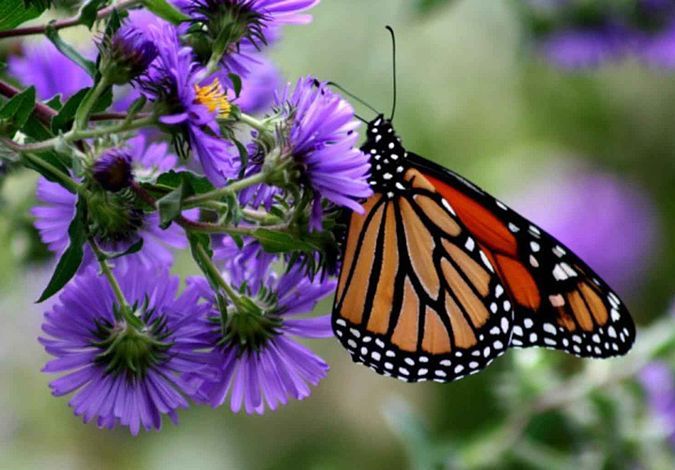
Too scared to let go
Reckless in what is fearsome
Deluded, we cling to false freedoms
To delusion itself.
The monarch’s epic pilgrimage
Is fearless
We too are stronger than we know –
So, sip the nectar of this moment
Vulnerable but true.
This world is populated with countless views about everything, including how to be free, and how to let go, and what it is that we wake up to. So ‘who’ is right? And what is this ‘who’ that is empty of any substance?
Delving deeply, we realize that we are not the body, not the mind, nor any of these mental and physical phenomena. So let us not cling to the vacuous views, opinions, attitudes about or by a self or selves, and all their fabricated characteristics. When what we hear about the teachings and techniques fails to ring true for us, then look inward.
See how things are and what they are. Stay within, intuitively aware of our own reality. Clearly and directly know the impermanent, imperfect and impersonal nature of it. Observe with patience, care and devotion. As we forgive conditions, again and again, the path gradually opens for us. We are trainees and we stay with what is present right now, supporting the uprising gifts of insight.
We are on a path, and we persevere faithfully to stay on it. Mere ideas about the goal and the results of the journey can dissipate our energy, distract us, and lead us astray. So let us focus on our commitment to the Path and the revelations that come not by thinking about walking it with our own feet but by actually doing it – conscientious and contemplative.
The Buddha’s younger cousin, Nanda, became a monk just after being wed to a beautiful princess. Infatuated with her, he could enjoy no spiritual happiness. The Buddha came to know this through his psychic powers, and took Nanda on a trip to a heavenly realm where he saw magnificent celestial nymphs that far surpassed the beauty of his betrothed.
The Buddha was truly wise. Understanding the frailty and potential of human nature, he promised those nymphs to Nanda if he kept up his meditation practice. The other monks ridiculed Nanda for his mundane aspiration. Nevertheless, the promise of those divine nymphs fired up his zeal enough for him to focus on his practice and he soon became an arahant. He realized the Deathless.
Purifying our actions, speech, and thought habits, and researching the states of the mind – these are the Path. Whereas being critical towards others because of their views about waking up or where the path leads is not the Path, is not the Deathless. It is more of an obstacle for us than what anyone might think or say about the goal of the holy life.
A junior astronaut may want to know what it feels like to be in space before ever going up into space. You can’t know until you sit in a rocket and blast off. Then you can really know. You feel the weightlessness, you embody the experience of it. Before going into space, you do all the preparations for it and then set out on the journey to find out for yourself.
So it is with treading this Noble Eightfold Path. No one can walk it for us. We have to walk this path one foot in front of the other, consciously taking in one breath upon the other, until we realize the Truth where this path leads. It only leads in one direction, to the sacred – right here within our own visceral experience.
Then we know for ourselves what is real and what is not, what is true and what is not. With the Buddha as our supreme incomparable mentor, we follow the Dhamma he taught, keeping the Buddha, the Blessed One, in the forefront of consciousness, as our best friend, teacher, guide and refuge.
Trust the Buddha. Trust the Dhamma. Trust the Noble Sangha who have completed this path. We follow them – alone but courageous, vulnerable but true.
Actually, we are always alone even when we are with others. And yet, spiritual friendship is a must for this work to strengthen our inner seclusion. So choose spiritual friends, guides, teachers, and spiritual community according to what resonates for you – with discernment and, necessarily, with consummate compassion and tolerance that can overcome all forms of our ignorance such as greed, ill-will, aversion and fear.
Insights gained from a technique are but frail without consummate compassion. Wisdom, yoked to compassion, helps us to hone our practice not through our concepts about the goal or our expertise in a particular technique, but according to what we excavate and learn from within.
We are students of the moment, of the breath, of the sufferings held in the body – examining everything that arises for us, and refining how we live and practise all eight limbs of the Path, namely right view, right intention, right speech, right action, right livelihood, right effort, right mindfulness and right concentration.
There could be a million views about how to wake up. This should not concern nor distract us. We stay in the middle, wary of attachment to views – our own or those of others. And wary of attachment to opinions, to judgments; to the ever-emerging mental fabrications that are subtly critical attitudes.
If we want others to be perfect, turn the mind instead to here, now. Where right view brightens into a clarity from within – not from anywhere outside of us – that is the seed of compassion for all beings, as to ourselves.
Otherwise we become stuck in wanting, believing in, and seeking perfection in the world – both the world of ideas and the outer world, or in the body. That is not possible. Why? Because “all that has the nature to arise, has the nature to cease”, and is not ‘me’ nor ‘mine’ to control. Nothing of the world is permanent, therefore it cannot be perfect.
Stay grounded with things as they are and know that true perfection is realized in clearing the heart-mind. Then the heart grows quiet. It touches all – encompassing all – never moving away from anything or anyone.
So may you follow the Way of the Dhamma with joy and ease. The whole world is in your heart.
Ayyā Medhānandī
Higher Mind
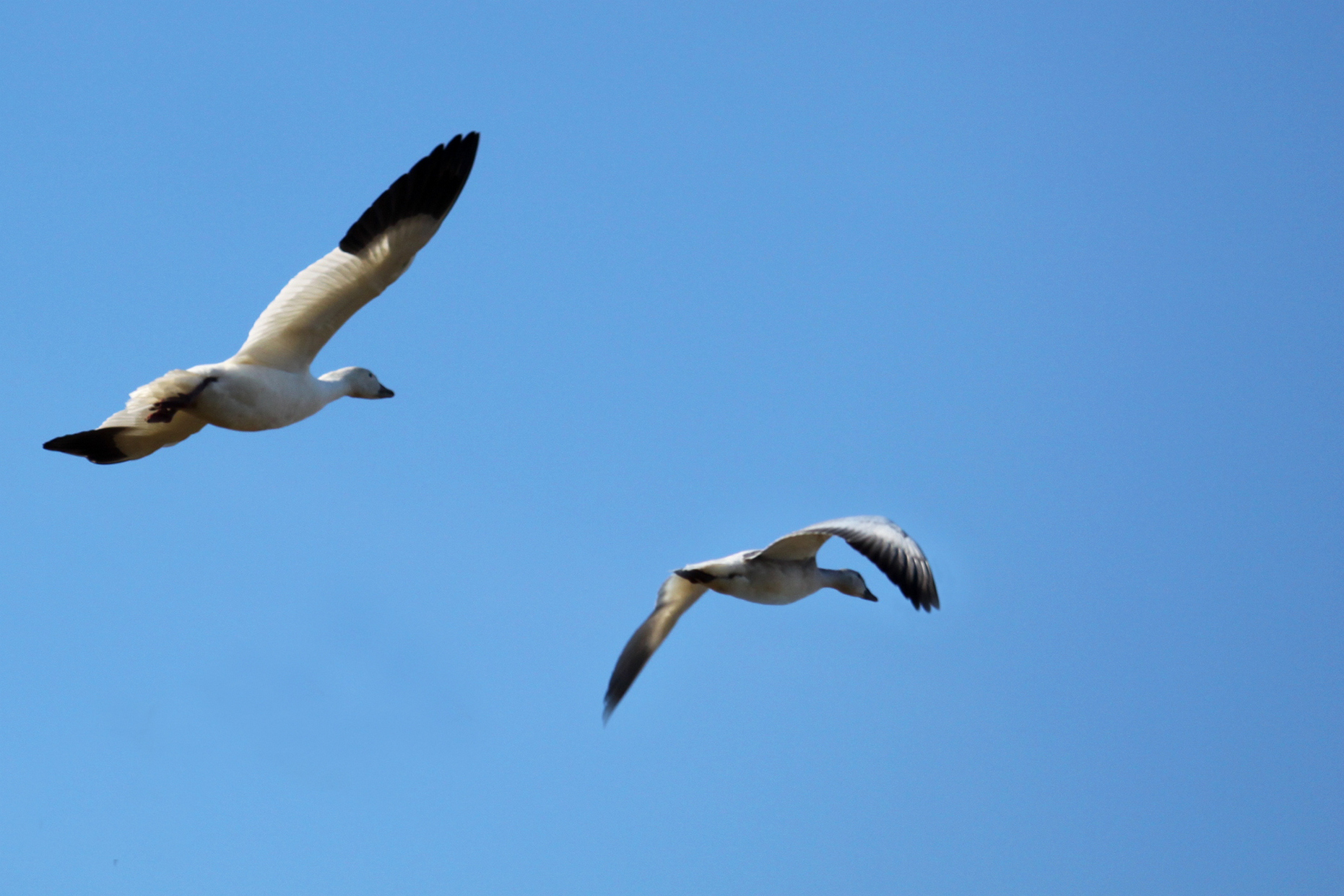 from the Ten Perfections (pāramī) by Ajahn Sucitto:
from the Ten Perfections (pāramī) by Ajahn Sucitto:
Generosity/Sharing (dāna): Recognizing the joy of sharing, and acknowledging that we all come into this world subject to pain, sorrow, sickness and death, I aspire to offer what I can in terms of resources, hospitality, healing and wise advice.
Morality/Integrity (sīla): Recognizing the trust that develops from conscientiousness and fellow-feeling, I aspire to cultivate actions of body, speech and mind that turn away from hostility and harshness, and that cut off greed and manipulative behaviour.
Renunciation/Values-based Simplicity (nekkhamma): Recognizing the ease that arises with modesty and contentment, I aspire to relinquish needless acquisition and an imbalanced use of material resources.
Clarity/Wisdom (paññā): Recognizing the skill of clarity, I aspire to handle my perspectives with awareness and careful reflection, and thereby arrive at an unbiased understanding.
Energy (viriya): Recognizing my capacity for vigour, or for distraction and laziness, I aspire to use my energy for my long-term benefit and for the welfare of others.
Patience/Tolerance (khanti): Recognizing the value of tolerance and perseverance, I aspire to let go of getting my own way, cutting corners and being narrow-minded.
Truthfulness (sacca): Recognizing the wise relationships that can be established through my own veracity and through the honesty of others, I aspire to free my mind from biased perspectives and devious behaviour.
Resolution (adhiṭṭhāna): Recognizing the potency of a firm heart, I aspire to hold intentions that are enriching, and to ward off vacillation on one hand and forceful goal-seeking on the other.
Goodwill (mettā): Recognizing the happiness of a warm heart, I aspire to cultivate empathy and compassion. Resisting mind-states based on fault-finding of myself or others, I will encourage goodwill rather than foster ideals of perfection.
Equanimity/Stability of Heart (upekkhā): Recognizing the peace of even-minded acceptance, I aspire to let sickness and health, blame and praise, failure and accomplishment flow through my awareness without getting distracted by them.
from Buddha-Nature, Human Nature, Amaravati Publications, 2019
Fearless in the Good
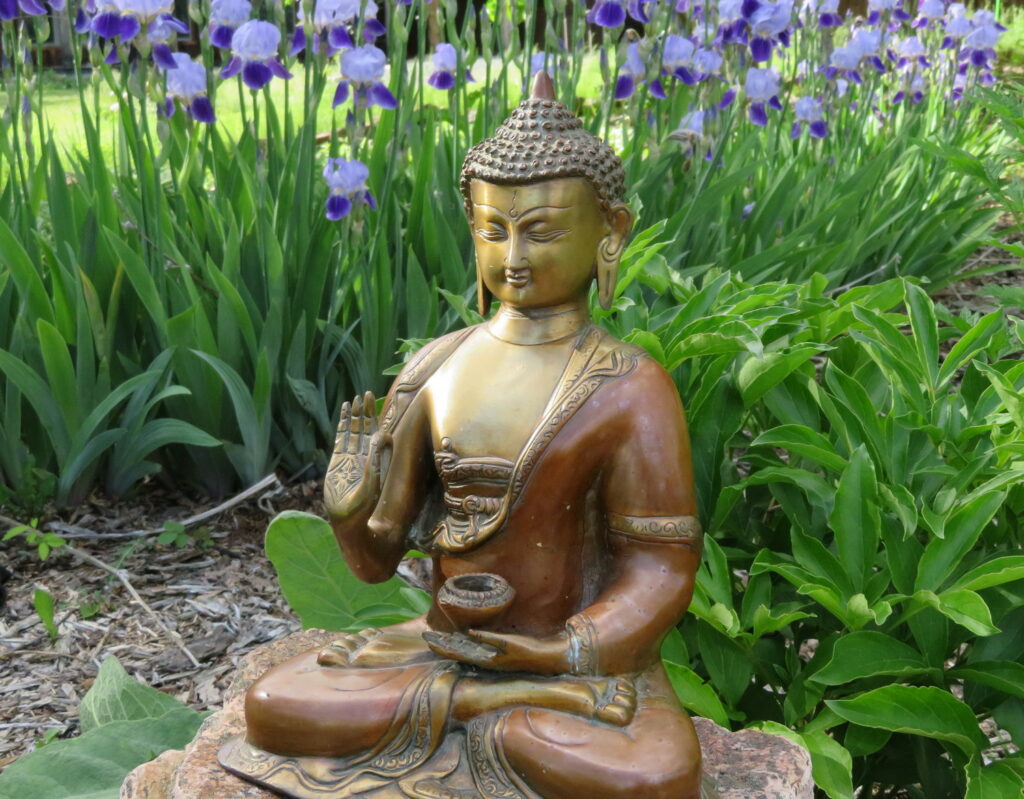
The Buddha asked King Pasenadi to reflect, “What if one of your trustworthy and reliable scouts came running to you from the east and said, ‘I have just come from the east and there I saw a great mountain as high as the clouds coming this way, crushing all living beings. Do whatever you think should be done, great king.’ Then a second scout came from the west, and a third from the north, and a fourth from the south, and they all said the same thing about the direction from which they had come.”
The Buddha then asked, “If such a peril should arise, such a terrible destruction of human life, the human state being so difficult to obtain, what should be done?”
King Pasenadi replied with great respect to the Buddha, “Bhante (venerable sir), if such a great peril should arise, such a terrible destruction of human life, what else should be done but to live by the Dhamma, devoted to non ill-will and non harm (dhammacariya), to live devoted to spiritual calm and peace (samacariya), and to live devoted to goodness, doing kind and generous deeds (kusalakiriya and puññakiriya).”
Then the Buddha replied, “I inform you, great king, I announce to you great king, ‘aging and death are rolling in on you’. When aging and death are rolling in on you, great king, what should be done?”
And once again King Pasenadi replied, “As aging and death are rolling in on me, Bhante, what else should be done but to live by the Dhamma, devoted to non ill-will and non harm, to live devoted to spiritual calm and peace, and to live devoted to goodness, doing kind and generous deeds.”
The Buddha reminded King Pasenadi that people, particularly kings, are obsessed with wealth and power and fame and getting one pleasant sensory experience after another, even at the cost of others.
But, to modernize his analogy, the king is reminded that no army nor government – no matter how large; no health care system nor vaccine – no matter how great; no riches – no matter how grand; no attitude of superiority due to skin colour, culture, language, gender or sexual orientation has any place or any scope when aging and death are rolling in.
Once again, the king replied, “There is no place or scope for any of these when aging and death come rolling in. As aging and death are rolling in on me, what else should be done but to live by the Dhamma, devoted to non ill-will and non harm, to live devoted to spiritual calm and peace, and to live devoted to goodness, doing kind and generous deeds.”
The Buddha consented, “So it is, great king! So it is, great king! As aging and death are rolling in, what else should be done but to live by the Dhamma, devoted to non ill-will and non harm, to live devoted to spiritual calm and peace, and to live devoted to goodness, doing kind and generous deeds.”
May we all find value in the Buddha’s message to this great king and in the king’s wise response, and, no matter what comes rolling in, may we set our compass towards love, kindness, goodness and deep and lasting peace.
No Goodness Is Ever Lost
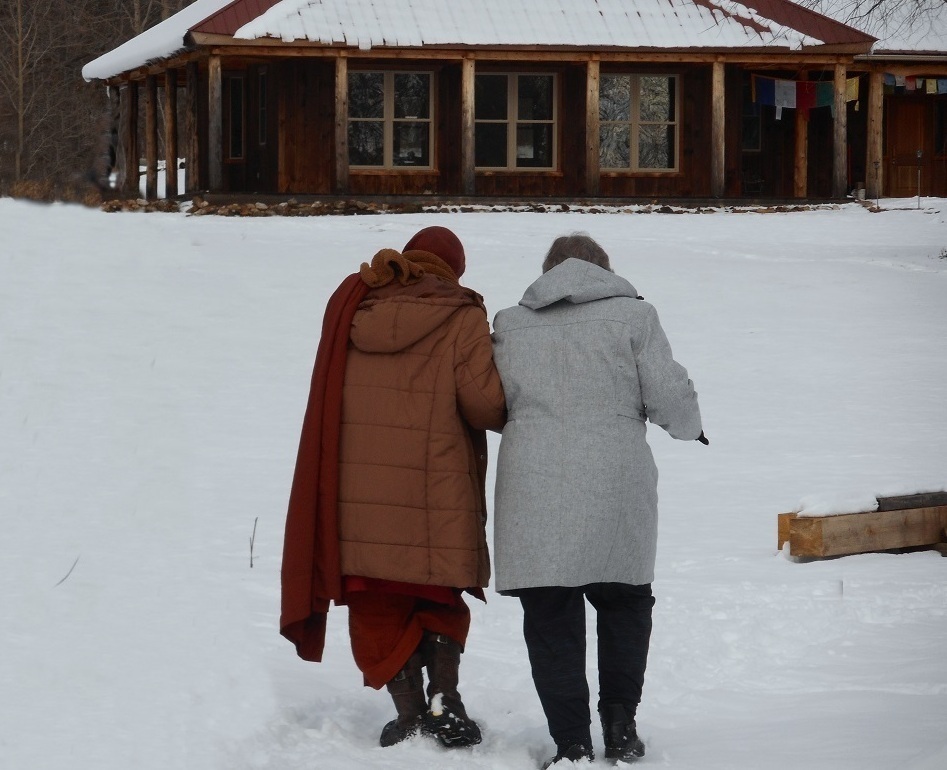
A reflection from Ajahn Jayasāro:
For most people, reaching the end of their life, breathing becomes laboured. Meditation on the breath, even for experienced meditators becomes difficult. At this crucial time, with death approaching, the meditations that are most practical are those that use the power of recollection to stimulate uplifting emotion.
Once kindled, that emotion can become the meditation object. If the mind starts to waver, then the meditator is encouraged to return to the original recollection in order to rekindle the emotion. Wholesome emotion, systematically cultivated in this way, can take the mind beyond the hindrances and into samādhi.
The most powerful of these meditations is the recollection of the good deeds that one has performed throughout one’s life. When we recall occasions on which we acted kindly and purely for the welfare of others, with no desire for any kind of reward, we feel an immediate sense of well-being. This is true even for good actions performed many years ago.
To realise that such a source of joy and peace lies within us is a wonderful discovery. We come to understand that no goodness is ever lost. Every kind action we have performed has added to the store of ‘noble treasure’ within.
Sati Saraniya Hermitage Podcast
We started publishing select Dhamma talks through a Sati Saraniya Hermitage podcast. New episodes will come out every Friday and you can get notified about these by subscribing to an update email from Mailchimp (make sure that you check “Sati Saraniya Podcasts” option) or by using your favourite podcast app. We are listed in the following directories: Blubbry, iTunes, Google Podcasts, Spotify, and Stitcher. For custom software, you can also use this RSS feed.
You can also listen to recent talks on our teaching’s page where you can search through a collection of Dhamma topics. Please let us know if you encounter any issues.
Four Kinds of People
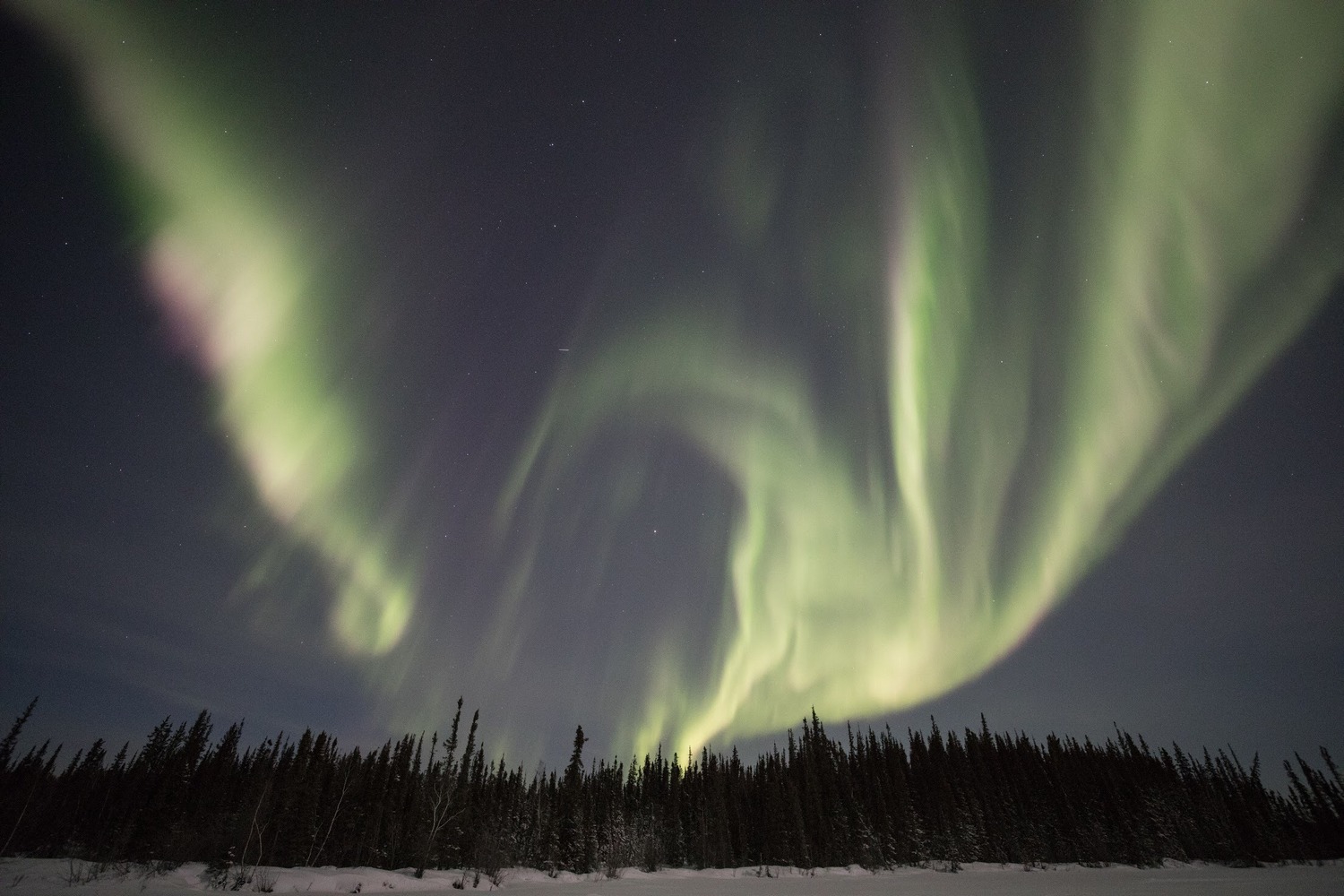 While reading the news of current world events, I am reminded of one of the Buddha’s teachings on different kinds of people in the world. On a certain occasion the Buddha said, “There are four kinds of people found existing in the world. What four? One in darkness who is heading for darkness, one in darkness who is heading for light, one in light who is heading for darkness, and one in light who is heading for light.” Tama Sutta: Darkness, AN 4:85
While reading the news of current world events, I am reminded of one of the Buddha’s teachings on different kinds of people in the world. On a certain occasion the Buddha said, “There are four kinds of people found existing in the world. What four? One in darkness who is heading for darkness, one in darkness who is heading for light, one in light who is heading for darkness, and one in light who is heading for light.” Tama Sutta: Darkness, AN 4:85Where Is Sanctuary?
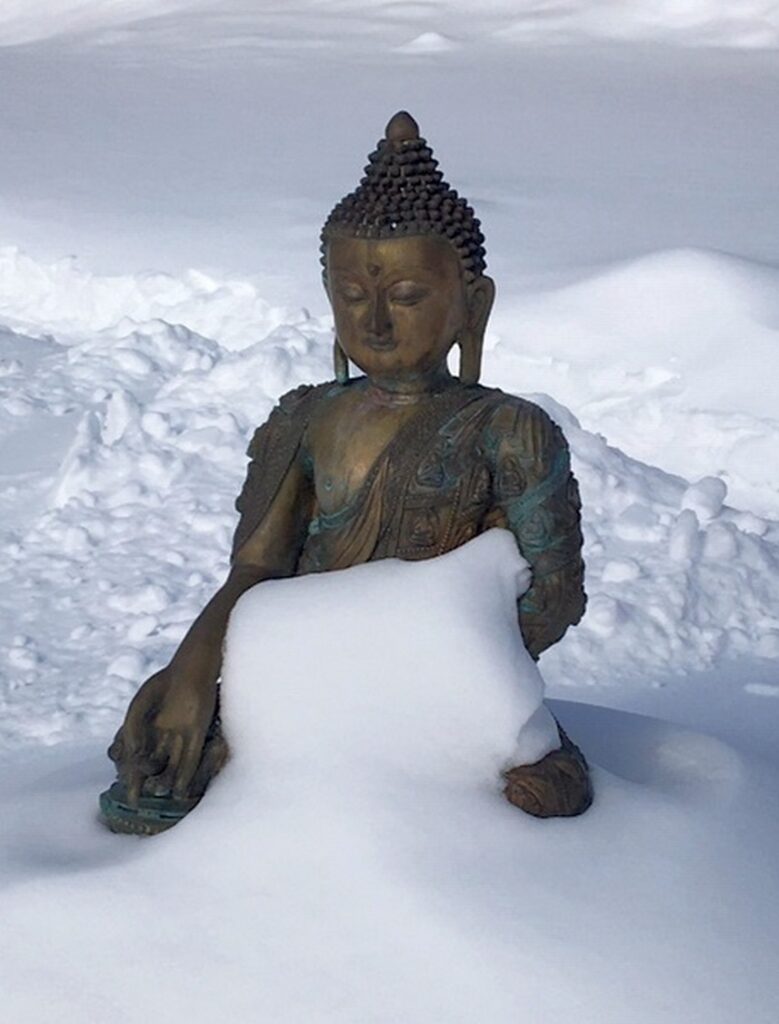
Nearly nine billion circling
This realm of disease
Decay and death
We all perish one day
And the end comes
Unannounced
Where is sanctuary?
I tell you –
Everything is ownerless
Everywhere crumbling
Ready to be wrenched away
At any moment
Just like this body
We have no choice
Then we let go –
There is sanctuary.
When compassion and wisdom
Preside in the mind
Awake in your refuge
Every imposter unmasked
Spurred on through panic
Fear
Or unspeakable loss
To surpass all suffering –
There is sanctuary.
When you gaze
At your own heart’s mirror
Beyond the tumult
Of the world
Nothing can compare
To that sheer silence
In the unabashed joy
Of the mind’s purity –
There is sanctuary.
When you pierce the trappings
Of delusion
Unveil the mystery of being
Our innate treasure
Dwelling blameless
Radiant and wise
Shredding the ghosts
Of lifetimes –
There is sanctuary
Knowing what is counterfeit
Unsustainable
Fleeting and empty
Die to shame
Sorrow, anger
And selfishness
Stay long enough
Under the arc of Truth –
There is sanctuary.
Ascend like the giant sycamore
A friend and shelter
For living beings
Reviled or loved
Seen or lost
Glad or despairing
Bestowing forgiveness
To all –
There is sanctuary.
Bless and be blessed,
Nothing greater nor less
With absolute faith
Unafraid
Expecting nothing
Enduring the many pains
Of the Way –
There is sanctuary.
When those pains reveal
Hidden gems
In your innermost heart
Trusting as you venture
In the unchartered depths
Of that sacred Truth
A seedling no more –
There is sanctuary.
© Ayyā Medhānandī
Sati Saraniya Hermitage 01-2020
Turning Our Minds To Compassion
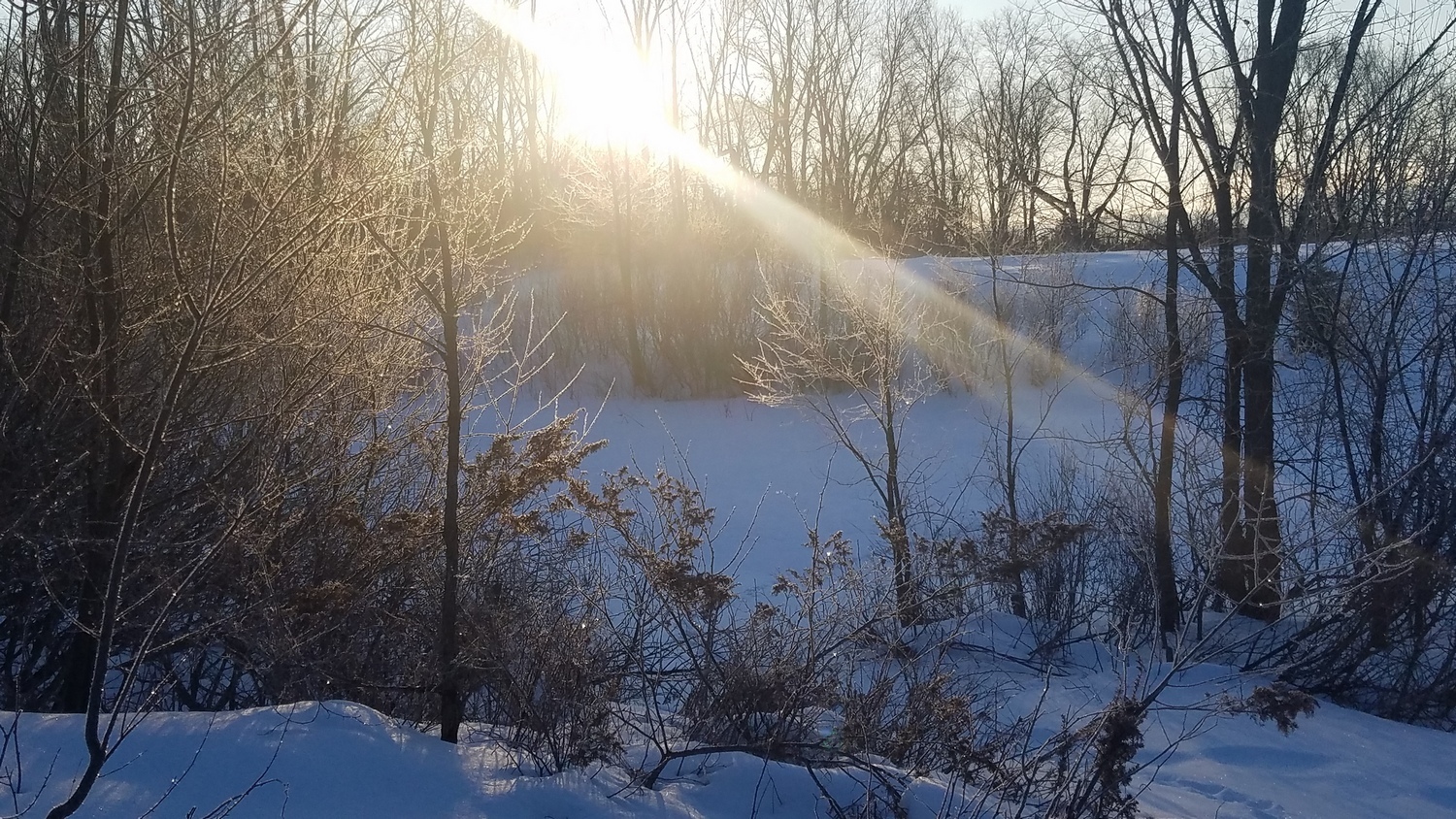
*** from Ajahn Jayasāro
“The more closely we contemplate our bodies and minds and the world we live in, the more profoundly we become aware of fragility and instability.
When a crisis like this pandemic lays bare the unreliable and uncertain nature of the world, we are unsurprised. We know that what is happening right now is not a deviation from the norm. It is merely that the covers have been dragged away from the truths that most people spend their lives trying to ignore.
With a daily grounding in the way things are, we can remain free from panic, anxiety and depression. We can turn our minds to compassion.
Faced with suffering of this depth and range, we form the heart-felt wish that all people, young and old, in all countries of the world, be free from infection. If they have contracted the virus, may they recover.
If they do not recover, may they be able to endure their pain with patience and acceptance; may they have a refuge in their heart to turn to; and in their final days, may they be surrounded with love and kindness.”
*** from the Buddha’s teaching at Sāvatthī, “If There is No Desire”, Nidāna Saṃyutta, SN 12.64 (Connected Discourses on Causation)
“Suppose, monks, there was a bungalow or a hall with a peaked roof, with windows on the northern, southern, or eastern side. When the sun rises and a ray of light enters through a window, where would it land?”
“On the western wall, Venerable Sir.”
“If there was no western wall, where would it land?”
“On the earth, Venerable Sir.”
“If there was no earth, where would it land?”
“In water, Venerable Sir.”
“If there was no water, where would it land?”
“It wouldn’t land, Venerable Sir.”
“In the same way, if there is no desire, relishing, and craving for solid food, consciousness does not become established there and doesn’t grow. … If there is no desire, relishing, and craving for contact as fuel … If there is no desire, relishing, and craving for mental intention as fuel … If there is no desire, relishing, and craving for consciousness as fuel, consciousness doesn’t become established there and doesn’t grow.
Where consciousness is not established and doesn’t grow, name and form are not conceived. Where name and form are not conceived, there is no growth of choices. Where choices don’t grow, there is no rebirth into a new state of existence in the future. Where there is no rebirth into a new state of existence in the future, there is no rebirth, old age, and death in the future. Where there is no rebirth, old age, and death in the future, I say there’s no sorrow, anguish, and distress.”
At the Altar of Emptiness
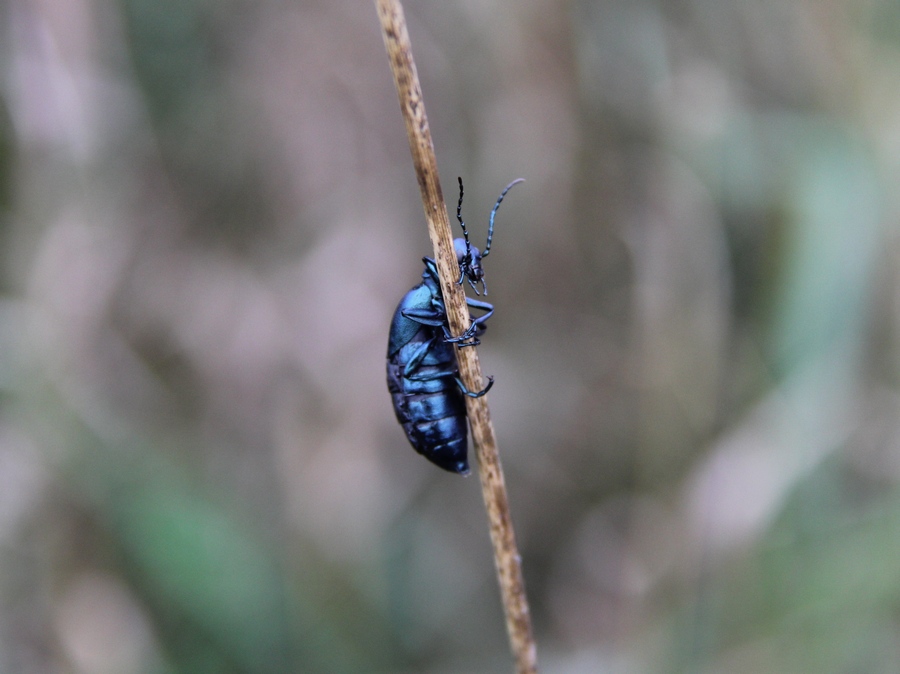 Caught in quivering flames
Caught in quivering flames
of fear
too vulnerable to see or hear
deafened by blame and loss –
I listen again to the Quiet.
I stand empty
at the altar of emptiness
bowing to goodness
to wisdom
my singular refuge –
the heart’s great compassion
come what may.
Tears and trials
no pain too cruel
to forgo kindness.
Open and awake
beneath the canopy
of Truth
where the wild fruit softens
ripens and falls –
it has no choice.
I learn to abseil
the impossible heights
on a nameless track
trusting the voice
of the ancients –
weaned on the joy
of letting go.
Through our hurdles
and struggles
of body and mind
we arrive –
yes, we arrive
at the cusp of death
in one tender exhalation.
Better set our moral compass
to the truth of this moment
stay present
facetime with now
discard the burden
in its entirety.
There we will touch
impermanence
the karmic law
and taste this Noble Truth
of pain
and the ending of pain
leading us beyond
self-obsession.
Do imposters beg our attention?
evict them all
one in-breath, one out
two, three
impermanent
imperfect
impersonal.
O to see at last
stay the course
at the coordinates of faith
gratitude
clarity
and peace –
the heart will unfold kindly.
Soaked in forgiveness
bravely blessing what is sweet
or sorrowful –
every moment
passing away.
© Ayyā Medhānandī 2019
photo by Brenna Artinger @ Sati Sārāņīya Hermitage
